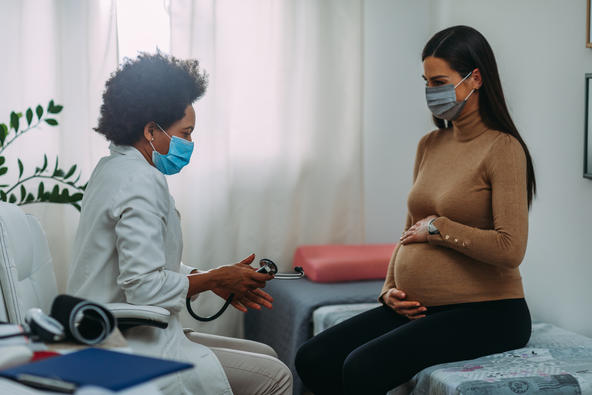HDI to Host Prenatal Disability Education Summit

The National Center for Prenatal and Postnatal Resources housed at the University of Kentucky’s Human Development Institute (HDI) will host the Prenatal Disability Education Summit on May 13 at the Residence Inn Baltimore at the Johns Hopkins Medical Campus.
The event is sponsored by the Joseph P. Kennedy, Jr. Foundation (JPKF) and will bring together national medical, advocacy, bioethics, industry, and policy leaders to collaboratively identify current challenges and potential solutions in the ethical provision of prenatal screening for disabilities.
Leaders from five national obstetrics, genetics and pediatrics organizations will meet alongside bioethics experts, industry representatives, academics in disability studies, and leaders from federal agencies and 12 national disability advocacy organizations representing multiple conditions that can be diagnosed prenatally. The event will be held in Baltimore at the Johns Hopkins Medical Campus.
“The Joseph P. Kennedy, Jr. Foundation is thrilled to sponsor and be a part of the Prenatal Disability and Education Summit,” said JPKF Trustee Alex Pender. “For more than 75 years, JPKF has pushed for progress, inclusion, and respect for people with intellectual disabilities. The Foundation has helped inspire and advance a wave of landmark federal legislation providing support and programs for the disability community, including the Community Mental Health Act, the Individuals with Disabilities Education Act, and the Americans with Disabilities Act. This summit is an important step forward to advance the way in which women and families are given a medical diagnosis at the early stages of pregnancy and will be pivotal in how doctors care for the women and children these practices will impact most.”
Stephanie Meredith, the event organizer and the Director of the National Center for Prenatal and Postnatal Resources says this event will be the first of its kind to bring together such a diverse coalition of stakeholders to discuss strategies for making sure that patients undergoing prenatal screening get the support and information they need when learning about disabilities.
“Research shows that patients continue to struggle to get information about disabilities that meets their needs at that vulnerable moment when receiving prenatal screening results. They want to know about the medical issues and genetics, but they also want to know what life is like for people living with these conditions and their families,” said Meredith. “This is particularly vital because people with disabilities are part of a historically marginalized population, so we must make sure discussions about disabilities are based on accurate and up-to-date information without being clouded by stereotypes. And the stakes are high because patients can experience lasting trauma when they don’t receive the information and support that they need.”
“As prenatal screening efforts increase, we are heading into a looming public health crisis of genetic information without a sufficient infrastructure for patient education and support,” added Meredith. “That means the work of this interdisciplinary team is essential to ensuring that all stakeholders are working together to meet the needs of vulnerable families and to provide clinicians accurate and up-to-date information and training about disabilities.”
The summit will:
-
Assess the current state of education about disabilities for expectant parents undergoing prenatal screening.
-
Review collaborative accomplishments since the last Down Syndrome Consensus Meeting in 2008.
-
Establish collaborative goals in the areas of public policy, organizational policies/guidelines, research, and ethical practices for the next decade to ensure that families receive accurate, up-to-date, and balanced information, resources, healthcare, and support they need following a diagnosis or screening results and to help families and clinicians better understand a more up-to-date vision of people living with disabilities.
-
Discuss best practices for building relationships between the disability advocacy and medical communities and discuss strategies for the education and training of medical and genetics professionals to better understand current life outcomes for people with disabilities.
-
Produce a directory of stakeholders who want to continue to work collaboratively on disability education in the prenatal setting
The primary sponsor of the event is the Joseph P. Kennedy, Jr. Foundation, and other vital sponsors include The National Parents First Call Center, a program of the Massachusetts Down Syndrome Congress, Down Syndrome Diagnosis Network, the National Down Syndrome Society, the Trisomy 18 Foundation, Sunflower Neonatology Associates, Case Western Department of Bioethics, and Genetic Support Foundation with support from the Kennedy Krieger Institute at the Johns Hopkins Medical Campus, and the Center for Dignity in Healthcare for People with Disabilities.
Credits
Court Cox

